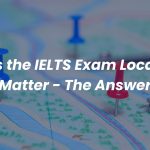Voxcel is a synonym for best IELTS Coaching online or offline. We have done tremendous work in the field and helped countless students improve their lives abroad.
What is IELTS?
The IELTS Form Full is the “International English Language Testing System” (IELTS), the world’s most popular English language proficiency test. More than 3 million IELTS Exam Registrations are made every year.
The IELTS exam is generally written by ESL students who want to go to a foreign country either to study, work, or migrate. Two international organizations, the British Council and IDP Education, take the exam. It is the only English test accepted by all academic institutions and embassies worldwide.
There are two types of IELTS tests: General Training and Academic. Both the tests are for different purposes. Choosing the right category for your visa application is not rocket science. If you are one of those who ask what is an IELTS exam
Note: There’s no difference between IELTS and IELTS for UKVI. Both are the same tests, just booked differently. IELTS for UKVI is for UK immigration. Similarly, Computer-Delivered IELTS/IELTS for UKVI, a.k.a. CD IELTS/CD IELTS for UKVI, is the same as the IELTS exam. It’s conducted on the computer and now offers an OSR (One Skill Retake) option.
Read why Voxcel is considered the best IELTS Institute in Ludhiana.
IELTS Academic
If you want to go to a foreign country for higher or further education, you must take the IELTS Academic test. All the reputed colleges and universities have set their minimum requirement of the test score for getting admission to their campus.
IELTS General Training
It covers work visas and immigration. The GT test ensures that you are accustomed to English and can survive in an English-speaking nation.
Note: Read how our IELTS Scepter can prove to be a milestone in your journey.
Preparation for IELTS
To get admission to your dream university in a foreign country or to secure a work/PR visa for another country, it is necessary to achieve a certain set of scores called bands in the IELTS test. For this, you must prepare in the right direction per the test format set by the official authorities to determine your English language skills. Moreover, it’s important to know the criteria of different modules to prepare for better scores.
Part 1: IELTS Listening Section
As clear from its name, the listening test will test your understanding ability. A recorded CD will be played to you but only once. During the test, you will be given a set of questions, which you have to answer while listening to the recording. You will also be given some time to check your answers. Candidates can write the answers on the question paper because they will be given 10 minutes to write their answers on the answer sheet after completing the whole audio. The different sections of the listening module, in a native speaker’s accent, will be played out to the candidates.
- Part 1: A conversation between two people set in an everyday social context.
- Part 2: A monologue set in an everyday context.
- Part 3: A conversation between up to four people set in an educational context, such as a university tutor.
- Part 4: A monologue on any academic subject is given. For example, lecture in a university.
Listening Evaluation—This set will consist of 40 questions. One mark will be awarded for each correct answer. There is no negative marking or penalty for wrong answers.
How does Voxcel help in Listening improvement?
The listening test is not as tough as it’s thought to be. Many students don’t know the importance of good grammar and underestimate the power of active listening. We encourage students to listen to podcasts, watch films and sports commentaries, and listen to English songs. The main thing is that whatever you do, do it actively. Occasionally, we show students English movies in our smart classes and thoroughly discuss them. This not only develops their English listening skills but also develops their personality.
Moreover, over-listening modules are designed according to the current difficulty level of the exam. All of them have a map, which students often find troublesome. We practice them on a big-screen TV using high-volume speakers so learners can see how to solve them without running from them.
Part 2: IELTS Reading Section
This section includes 40 questions based on three reading passages, which will test the candidate’s reading skills and level of understanding of the language. The test includes reading a gist, reading for main ideas, skimming, reading for details, understanding logical arguments, and recognizing the writer’s opinions, attitude, and purpose.
It will have different content for academic and general IELTS.
Academic Training Test
In this section of the IELTS test, there are three long and descriptive texts, which also contain graphical images. If so, a glossary will be given to facilitate students. The topics will be picked from newspapers, magazines, journals, and other public publishing entities, written for a non-specific audience and are on trending and popular topics. So students have an idea of what to expect from the article.
General Training Test
This version of the test includes materials from Notices, Books, Magazines, Advertisements, Company Handbooks, and Manuals. It contains mainly the data one encounters daily in an English-speaking environment. The first section is known as the ‘social survival’ section. It contains texts related to basic linguistic survival in an English-speaking ambience. The second segment contains a more advanced level of the language and is known as Training Survival. It contains some elaborate expressions that are used in the English language. The third paragraph is mostly descriptive and instructive instructions and is known as General Training.
IELTS Reading Marks and Assessment
One mark is awarded for each correct answer in the 40-question test. There is no penalty for wrong answers.
Note: Read why our study visa services are different from the rest
How does Voxcel help in reading improvement?
Many students see the reading module as a nightmare. The teachers at Voxcel understand the students’ mindsets, and we prepare various strategies and conduct thorough and intensive reading sessions to increase the student’s understanding. Since the reading module is designed to check vocabulary, we also work on developing the student’s reading habits and offer them novels, articles, journals, columns, etc., to read and discuss later.
Once students have completed the reading module, we discuss all questions in detail so they can get their correct answers. This improves analytical thinking and helps improve scores. We only provide authentic reading modules designed and testified by the IELTS officials so students can understand the real difficulty level and what to expect in the exam.
Part 3: IELTS Writing Section
This section comprises two parts. In the first section, the candidate has to write a paragraph of at least 150 words, for which they will be given 20 minutes. The second section has a limit of at least 250 words, which should be completed in 40 minutes.
Academic Writing Training
This section of the test contains topics related to students seeking admission to undergraduate and postgraduate studies or professional registration.
- Task 1: The candidate is given graphs, tabular diagrams, charts, etcetera. They have to explain the given graphical representation in their own words. In layman’s terms, they must explain the process shown in the graphs.
- Task 2: In this, the candidate’s mental ability is checked through logical arguments or points of view. The candidates will be given a set of arguments and statements, and their opinions must be justified. The evidence and implications must be compared.
General Writing Training
It contains texts that are most common in one’s life.
- Task 1: In this section, the candidate is given a situation and asked to write a letter explaining the scenario or requesting information. The letter will be personal, formal, or semi-formal in style.
- Task 2: In this part, the candidate must write an essay responding to an argument or stating their point of view. The candidate is also required to assess the situation and provide a solution.
How does Voxcel help in writing improvement?
We have thousands of fans of our writing sessions. We have helped countless students score their desired writing band in the exam. The teachers at Voxcel are trained to keep an eye on every little writing mistake and work around it. Every writing, be it Task 1 or Task 2 of GT or AC, is marked on four parameters, making it very easy for students to understand where they’re lacking and what they must do to improve their writing band.
Every day, we conduct writing sessions, assign students at least one writing task, and closely track their performances. We check their work before their eyes and discuss the mistakes in detail. Such healthy discussions produce great writing results in the exam. We have countless stories of students who previously failed their writing module but got their desired scores with our IELTS writing sessions.
From Grammar Range and Accuracy, Lexical Resource, Coherence, and Cohesion to Task Achievement/Response, we check everything in every minute detail. Very few people are skilled at this, and with our years of hard work, practice, and learning to hone our teaching skills, we can do it. Voxcel’s teachers’ performances are regulated through an internal parameter so they can do justice to every student.
Part 4: IELTS Speaking Section
This section comprises speaking tests to assess the candidate’s fluency and command of the English language. All the speaking tests are taken so that the candidate does not have the chance to give a rehearsed response.
- Part 1: It is the beginning of the interview section. In this phase, the interviewer introduces himself/herself to the candidate and verifies the candidate’s identity. The examiner usually asks 4-5 questions about the candidate directly or indirectly. This section is considered the easiest, as it’s a warm-up round for the following two.
- Part 2: The candidates will be asked questions based on a card, which the interviewer will give them. A student is given a cue card topic and pen paper to prepare ideas for one minute. Afterwards, he is instructed to speak for up to two minutes. He must express his ideas coherently and answer the task clearly and responsively.
- Part 3: The candidates participate in a two-way discussion on more abstract ideas related to part two. In simpler terms, part 3 is the continuation of part 2.
How does Voxcel help in Speaking improvement?
In our IELTS Coaching, online or offline, we treat every student like a beginner and teach them what works in IELTS speaking and what doesn’t. Most students fail to consider the sounds they produce, which lower their band in the pronunciation parameter. We teach them how to do it, staying critical of these things.
When we take speaking, we assess students on our designed IELTS Speaking Assessment Sheet (SAS), which has every speaking parameter (Coherence and Fluency, Pronunciation, Lexical Resource, and Grammar Range and Accuracy). Students track their performances individually through our SAS and work on the weak areas.
Moreover, we have smart classes, so show them speaking videos of professionals and discuss how it’s done. Our training sessions can be stretched for hours because we want nothing but the best.




